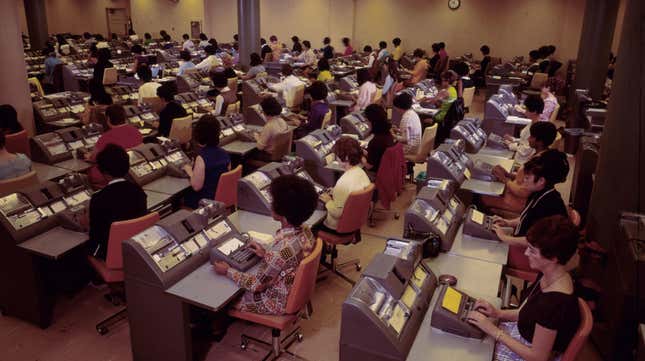

If you read enough of a certain kind of women’s media, you may start to believe that material success is just a matter of convincing imitation. There are endless columns and books that will tell you as much: How this woman gets it done, how this woman dresses the part, how this woman negotiated for more. Follow each step like a recipe and you can maybe have some of that money or prestige for yourself.
This week, the object lesson came in the form of a Cosmopolitan profile of the author and New York Times magazine staff writer Taffy Brodesser-Akner. After witnessing her male colleagues at GQ file lavish expense reports and turn in drafts down to the wire—professional arrogance that she rightly observes “almost added to their allure”—Akner soon began making demands of her own. She found success through hard work, but also a shift in presentation. “When I started doing the ‘I don’t get out of bed for less than $4 a word’ thing,” she explained, “people started paying me $4 a word.”
As the profile spread through what I have to imagine is a relatively narrow audience of people who want to read about journalists, the quote became a Rorschach test: it was either arrogant or inspiring, tone-deaf or honest.
If a woman works in media for two decades and does time-consuming writing that many people like, one argument went, then she deserves to be paid a high rate. In fact, that this should happen at all is a good thing for all women, since these kinds of prestige fees often only go to men and are rarely talked about openly. Akner, who had found herself caught in the middle of what was actually a more depersonalized argument about the abject shittiness of the media industry, echoed a version of this response in a separate interview: “I think everyone should be talking about their salaries. I really do believe that all boats rise in that case.”
-

-

-

-

-

-

-

-

-

-

-

-

-

-

-

-

-

-

-

-

-

-

-

-

-

-

-

-

-

-

-

-

-

-

-

-

-

-

-

-








































